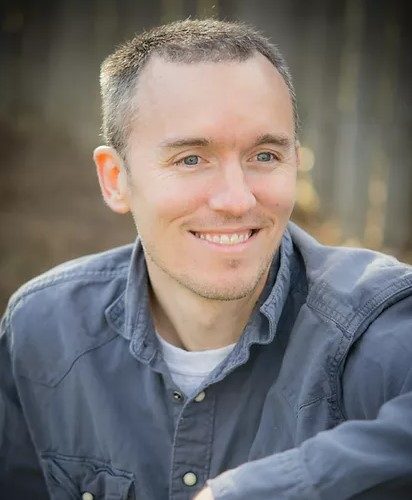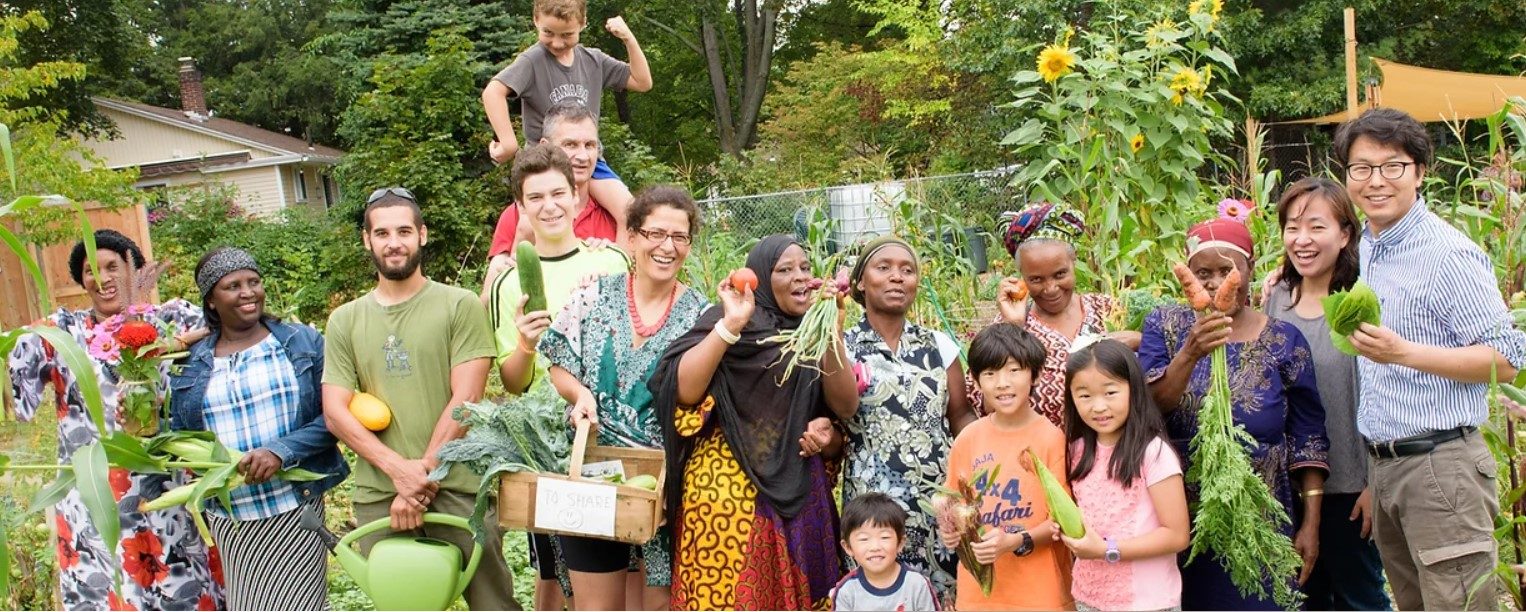Founder Justin Munroe calls Grow Nashua “a movement as much as it is an organization.” Shaw’s has supported this innovative urban gardening and education nonprofit through its GIVE BACK WHERE IT COUNTS Reusable Bag Program.
Tell us about Grow Nashua.
We started back in 2015 with a seed of an idea. My wife and I were actually out in our own yard during the early spring, when you just want to be outside, and you want to have something nice to do out there. At the time there was a lot of news coverage about refugees. We were thinking, what would it be like if we were stuck in another place and didn’t have the ability to do this right now? Not only do we enjoy being outside and preparing our garden, but we also use it to feed our family. Both our families have done that for generations. What if you were a refugee in Nashua, wanted to grow your own food and you literally didn’t have any options?
We first thought maybe we should give somebody a little spot in our yard, but then we found there were quite a few refugees, and our yard probably wouldn’t be big enough. We could probably find a larger space that could help several families.
We started researching to see what places are like this out there. I started volunteering and visiting places that did this sort of work. And then just took the things we like from all those programs and really honed in on them.
At the center of everything we do is community. We’re always focused on every decision that we make being based around community. So, the gardens are a great way to bring people together from neighborhoods, from different places. It’s a common denominator that everybody likes food. They like growing and eating it, and so we use that as a way to connect neighbors through all of our different programs.
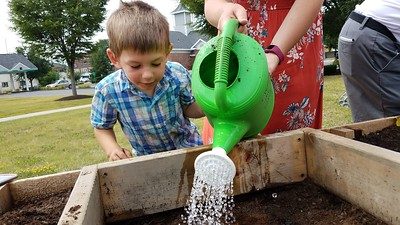
What services do you provide to the community?
All the people that we serve in all of our programs are low-income families and everything that we do is for free. We do that so that they can garden without worry. The Lil’ Free Farmstand is a program that we run where people can just walk up to a farm stand different days during the week and get fresh produce. We want it to be something for people who are pinched with the cost of fresh food.
In the last two years, inflation has been, and is, ridiculous around food and fresh food has always been the most expensive. People who struggle with not having enough income to purchase fresh food, stay in the middle aisles at grocery stores where the food is packaged and processed, and that’s not good.
That’s why our programs focus on families that are in need. And most of the people that do participate in either the urban gardens or come to the farmstand are parents with children.
Then we also offer an entire education program that we do in the elementary schools. The kids really participate and then they tell their parents, and their parents can sign up.
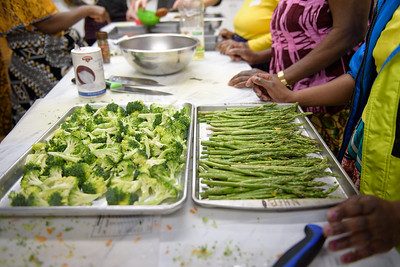
At the center of everything we do is community. We’re always focused on every decision that we make being based around community.
We also partner with different organizations and do cooking classes in the state. That way it closes that circle of learning about growing the food, harvesting the food and cooking the food. It’s a process that empowers people and gives them the energy that they need to hopefully then get themselves out of poverty.
Any opportunity that we have to expand our organization, we try our best to hire people that are program participants to then work for us. So that we have not only their lived experience as part of our team and we can serve people better, but also to give them that economic uplift to break that poverty cycle.
Tell us a story that illustrates the good work you are doing.
The generosity of people in the gardens is overwhelming. There was this one woman in our first year, her name was Salama and she was from Uganda where she had acres of farmland. She wanted to grow some strawberries, and I took her to the store to pick out some plants. I told her it was a little late to plant strawberries and that you’re not going to get too many. But she put them in and then at the end of the season she had just two strawberries. There were some kids in the garden at the time and she didn’t even hesitate. She just handed them over, gave one to each kid that was there. It was a powerful moment. People can be so generous and kind.
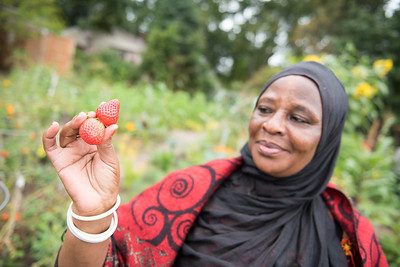
What is your greatest achievement or contribution to the community?
There are a lot of good people in Nashua. I would say that collaborating with other people in the community and always leading with asking, how can we help you and your program, or how can we help you as an individual, has always worked for us. It’s resulted in sincere relationships. It’s been probably the best part of all this coming together over the last seven years.
What do you want people to know about Grow Nashua?
All of our programs are really just a tool to build community and they do so in a way that also has a ton of benefits. It’s very replicable. This could work in any community in the United States. Each city and town is different, so it would look a bit different. But if you put together a community garden and you put together a free farmstand where anybody who grows vegetables and has extra can give away so that the people in the neighborhood can come and get it, that works in any neighborhood in any city.
Every city has schools. You can teach this education in schools; you can set up a few small school gardens; nothing needs to be huge. It’s not that hard to do.
And then we run a curbside food diversion program, where we pick up food scraps and turn it into compost and energy.
So those four things together could be taken and could be applied in any community. You’d get different stakeholders and different people and different needs. But the end of the day, all those things still build community. And if we start to realize that we’re stronger when we are working together, rather than allowing ourselves to be so easily divided, we can build trust and we really need that today.
All of our programs are really just a tool to build community and they do so in a way that also has a ton of benefits.
How are you using the funds you’ve received from the Shaw’s GIVE BACK WHERE IT COUNTS Reusable Bag Program?
Those funds we used to purchase sunflowers seeds for the Sunflower Project that we’re running. We’re actually doing a project where we are engaging the entire community to plant sunflowers anywhere they can think of as a visual sign of solidarity with families in Ukraine.
Schools, churches, hospitals, libraries, kids…we are all working together to do something powerful. We can think that we’re too small to do anything and that no one person can do anything, but that’s not true.
